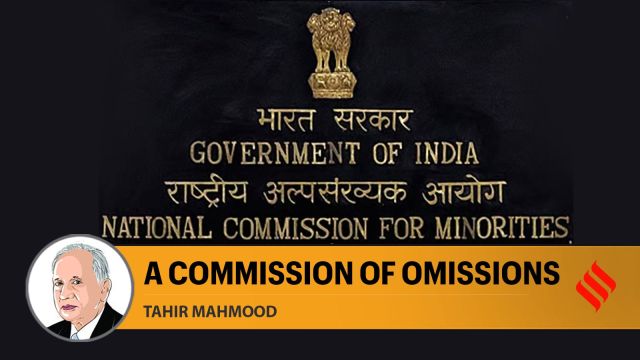
Currently, the National Commission for Minorities (NCM) has no chairman or members. There have also been whispers regarding its uncertain future. The Delhi High Court, while hearing a Public Interest Litigation (PIL) pleading for directions to reconstitute the Commission, has recently sought the response of the Union government. But, does the absence of this body for too long really have an adverse impact on the life and rights of the minorities?
There are several National Commissions in the country. All of them are supposed to be watchdogs to oversee adherence to the provisions of the Constitution relating to civil rights and liberties of various sections of society. The Minorities Commission was first set up in 1978 under a Ministry of Home Affairs resolution. Five months later, a similar body named the Scheduled Castes and Scheduled Tribes Commission was formed. Both were set up by a coalition government headed by Morarji Desai and were slated to be given constitutional status. Some coalition partners were, however, not in its favour. The opposition parties of the time, including the Congress, were not happy with the setting up of the Minorities Commission. On returning to power in 1981, the Congress reconciled with the existence of the Minorities Commission but remained averse to giving it any space in the Constitution. A former Chief Justice of India, Mirza Hameedullah Beg, was appointed its Chairman and retained the position till 1988.
A second attempt to include the two Commissions in the Constitution was made in 1990 by another coalition government headed by V P Singh. A Constitution (Amendment) Bill was moved in Parliament but remained in abeyance due to the lack of required political support. After coming back to power, the Congress government amended the Bill to exclude from it the Minorities Commission and restricted its provisions to the SC/ST Commission. The Bill was passed without any hindrance. Consequently, the Minorities Commission remained a non-statutory body for 14 years after its initial establishment.
However, in 1992, the Congress government led by Narsimha Rao at last placed it under a parliamentary charter, renaming it as the National Commission for Minorities (NCM) and enabling it to exercise some powers of a civil court specified in the Act.
While enacting the National Commission for Minorities Act, 1992, the new Congress government passed another law to set up a National Human Rights Commission (NHRC) to “counter the false and politically motivated propaganda by foreign and Indian civil rights agencies” regarding increasing violations of human rights in the country. It came into existence through an Ordinance which was later retrospectively replaced by the Protection of Human Rights Act, 1993. Under this Act, chairpersons of three pre-existing national Commissions (those for minorities, SC/STs and women) were to be ex officio members of NHRC.
The first statutory Minorities Commission was headed by a former Andhra Pradesh High Court judge, Mohd Sardar Ali Khan, and the second by me. Both of us focused our attention on the educational and cultural rights of the minorities enshrined in Articles 29 and 30 of the Constitution, which were being flagrantly violated across the country. We did the most we could do to provide relief, using the limited civil court powers available to us. I was succeeded as the NCM Chairman by a former judge of the Delhi High Court Mohd Shamim. Since he demitted office in 2003, the Commission has been in the hands of persons who were not from the legal fraternity.
In 2004, the Congress government set up a separate National Commission for Minority Educational Institutions (NCMEI). The NCM chair was vacant, and Prime Minister Manmohan Singh wanted me to take it up once again. But as not much was now left for the NCM to do for the minorities, I showed no interest. Simultaneously, the ruling party planned to constitute a temporary Commission “to suggest criteria for identification of socially and economically backward sections among religious and linguistic minorities and suggest necessary constitutional, legal and administrative modalities required for implementing its recommendations.” A former Chief Justice of India, Ranganath Misra, was to chair this body. As asked by the PM, I joined it as its law member and played a major role in completing its assignment. The Commission became functional in 2005 and soon submitted its report, on which the government, however, took no action at all till it lost power in 2014.
None of the so-called National Commissions has ever enjoyed autonomy in fulfilling its statutory obligations. None of them, even after long years, has brought any revolution in the lives of those for whom it had been created. At least the NCM, with its huge annual budget, is an easily avoidable burden on the taxpayers’ hard-earned money. Its history of 47 years shows that whatever little the minorities of the country can expect in terms of the constitutional provisions for their rights as equal citizens of the country can never be secured through intervention by the toothless tiger called the NCM. So, if it is thrown into the dustbin of history, it will be worthless to shed tears on its unceremonious exit from the national scene.
The writer is a former NCM Chairman and member of the Law Commission of India